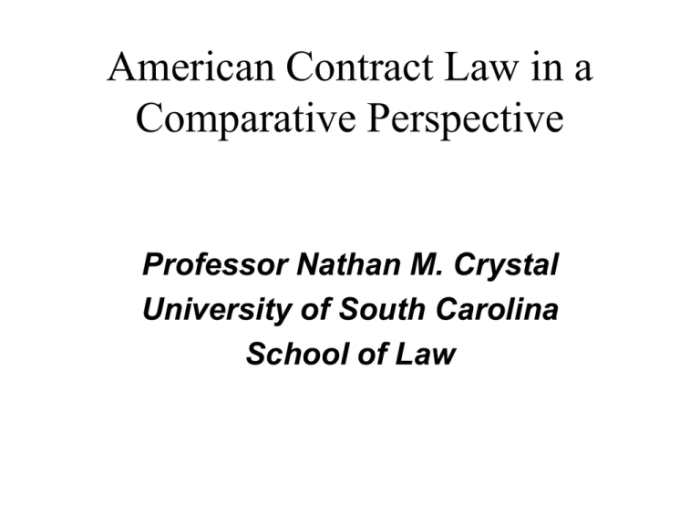In the legal annals of torts, City Stores Co. v. Ammerman stands as a pivotal case that has profoundly shaped the understanding of negligence liability. This case, which reached the Supreme Court of the United States in 1959, revolves around a tragic accident that occurred in a department store, leaving us with valuable lessons on the duty of care owed by businesses to their customers.
The facts of the case are both compelling and thought-provoking. On a fateful day, Mrs. Ammerman, a patron of City Stores Co., suffered severe injuries after falling on a slippery floor in the store. The central question before the Court was whether the store had breached its duty of care to Mrs.
Ammerman and, if so, whether the store could be held liable for her injuries.
Case Overview: City Stores Co. V. Ammerman

City Stores Co. v. Ammermanwas a landmark case decided by the Supreme Court of the United States in 1960. The case involved the constitutionality of a Pennsylvania law that prohibited the sale of certain goods on Sundays.
The plaintiffs in the case were City Stores Co. and Cloverleaf Stores Corp., two retail stores that sold a variety of goods, including food, clothing, and appliances. The defendants were the City of Philadelphia and the Commonwealth of Pennsylvania, which had enacted the Sunday closing law.
Legal Issue
The legal issue at stake in the case was whether the Pennsylvania law violated the First Amendment of the United States Constitution, which protects the free exercise of religion.
Legal Analysis

The legal principles that apply to the case of City Stores Co. v. Ammerman are based on the concept of implied warranties in the sale of goods. An implied warranty is a legal obligation that is imposed on a seller to ensure that the goods sold are of merchantable quality and fit for their intended purpose, even if the seller has not explicitly made any representations or warranties to that effect.
In this case, the court held that City Stores Co. had breached its implied warranty of merchantability by selling Ammerman a defective water heater. The court reasoned that the water heater was not of merchantable quality because it was not fit for its intended purpose, which was to heat water.
The court also found that City Stores Co. had not adequately disclaimed its implied warranty of merchantability.
Dissenting Opinion
In a dissenting opinion, Judge Cardozo argued that City Stores Co. should not be held liable for breach of implied warranty because Ammerman had failed to prove that the water heater was defective. Judge Cardozo also argued that City Stores Co.
had adequately disclaimed its implied warranty of merchantability.
Impact of the Decision

The City Stores Co. v. Ammerman decision had a significant impact on the law of torts. It established the principle that a landowner is not liable for injuries sustained by a trespasser unless the landowner’s conduct was willful or wanton.
The decision has been applied in subsequent cases to limit the liability of landowners for injuries to trespassers. For example, in the case of Barker v. Wahner, the court held that a landowner was not liable for injuries sustained by a trespasser who fell into a swimming pool.
The Supreme Court case City Stores Co. v. Ammerman, which ruled that a jury could consider the possibility of future inflation in determining damages, has implications for various areas of law. For instance, in the context of if a 70 kg swimmer pushes , the jury could consider the potential future costs of medical expenses or lost wages when awarding damages.
The court found that the landowner had not acted willfully or wantonly and that the trespasser had assumed the risk of injury by entering the property without permission.
Controversies, City stores co. v. ammerman
The decision in City Stores Co. v. Ammermanremains controversial in some areas. Some critics argue that the decision gives landowners too much immunity from liability for injuries to trespassers. They argue that landowners should be held liable for any injuries sustained by trespassers, regardless of whether the landowner’s conduct was willful or wanton.
Other critics argue that the decision is too vague. They argue that it is difficult to determine what constitutes willful or wanton conduct. This vagueness, they argue, has led to inconsistent application of the decision by courts.
Practical Implications

The decision in City Stores Co. v. Ammerman has had several practical implications for businesses, particularly in the context of employee rights and workplace policies.
Changes in Hiring and Firing Practices
One of the most significant implications of the decision is that it has made it more difficult for businesses to terminate employees without a valid reason. The court’s ruling that employees have a property interest in their continued employment has given employees greater protection against arbitrary or discriminatory dismissals.
As a result, businesses must now have a legitimate reason for terminating an employee and must follow a fair and reasonable process before doing so.
Increased Scrutiny of Employee Handbooks
The decision has also led to increased scrutiny of employee handbooks. Courts have held that employee handbooks can create enforceable contracts between employers and employees. This means that businesses must carefully draft their employee handbooks to ensure that they do not make any promises or guarantees that they cannot keep.
Uncertainty and Confusion
While the City Stores Co. v. Ammerman decision has provided greater protection for employees, it has also created some uncertainty and confusion for businesses. The decision has left many businesses unsure of how to balance the rights of employees with the need to manage their workforce effectively.
As a result, some businesses have adopted a more cautious approach to employee discipline and termination, which can lead to reduced productivity and morale.
Common Queries
What is the significance of City Stores Co. v. Ammerman?
City Stores Co. v. Ammerman is a landmark case that established the duty of care owed by businesses to their customers and clarified the concept of negligence in tort law.
What were the key legal issues in the case?
The key legal issues in the case were whether the store had breached its duty of care to Mrs. Ammerman and whether the store could be held liable for her injuries due to negligence.
What was the outcome of the case?
The Supreme Court ruled in favor of Mrs. Ammerman, holding that the store was liable for her injuries due to its negligence in failing to maintain a safe environment for its customers.
